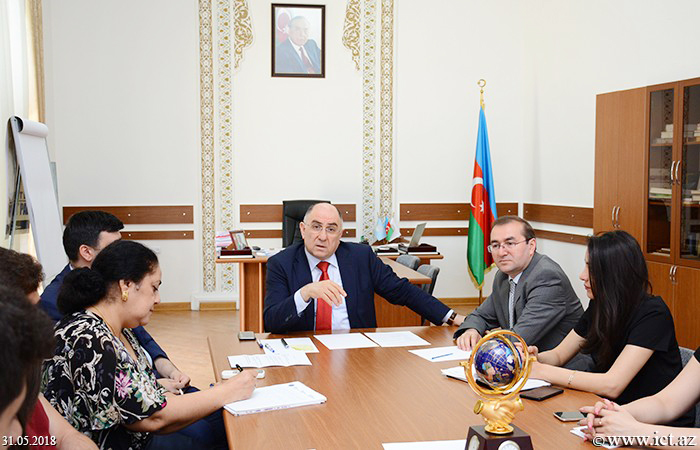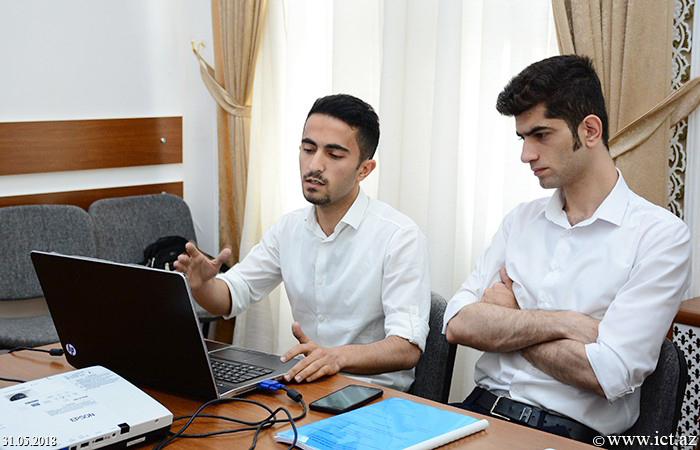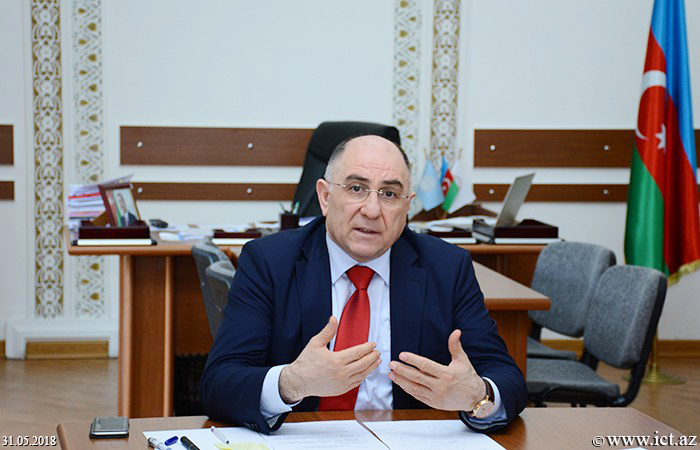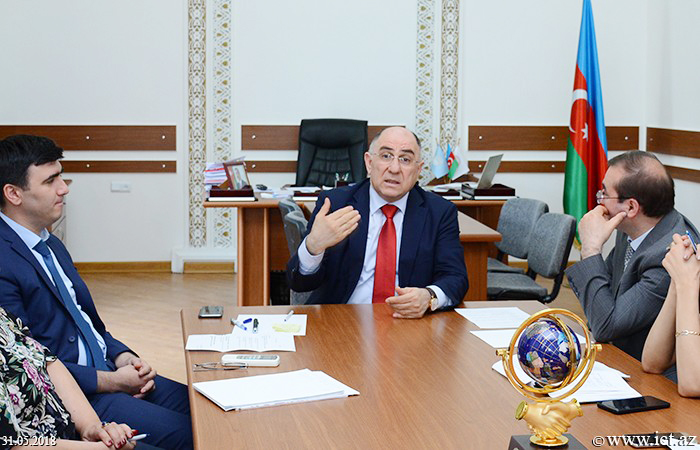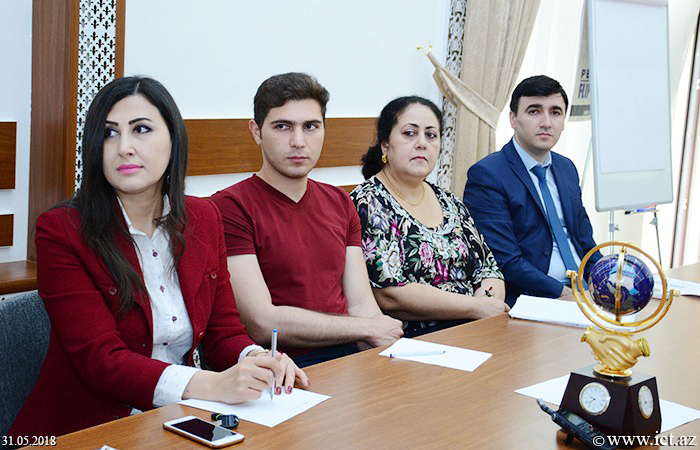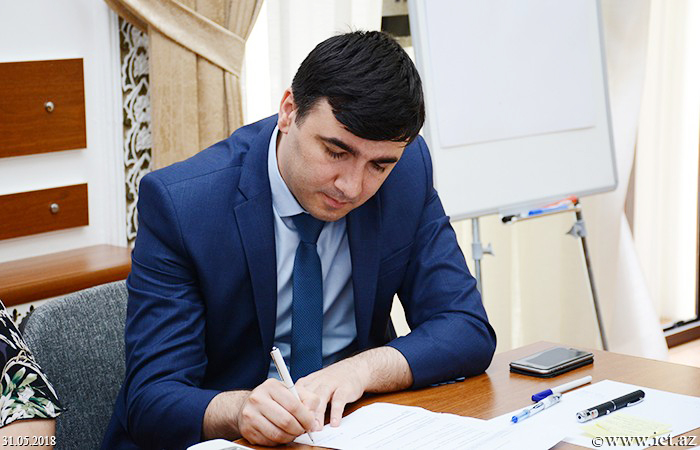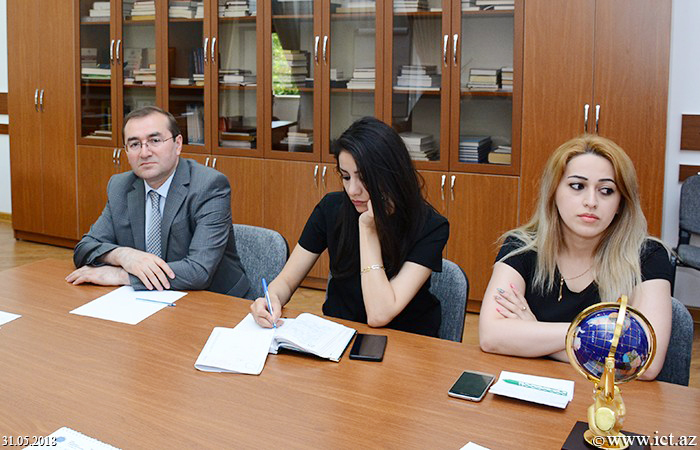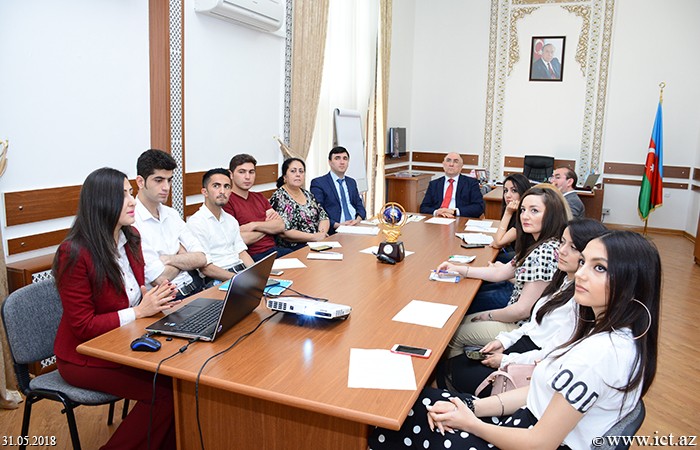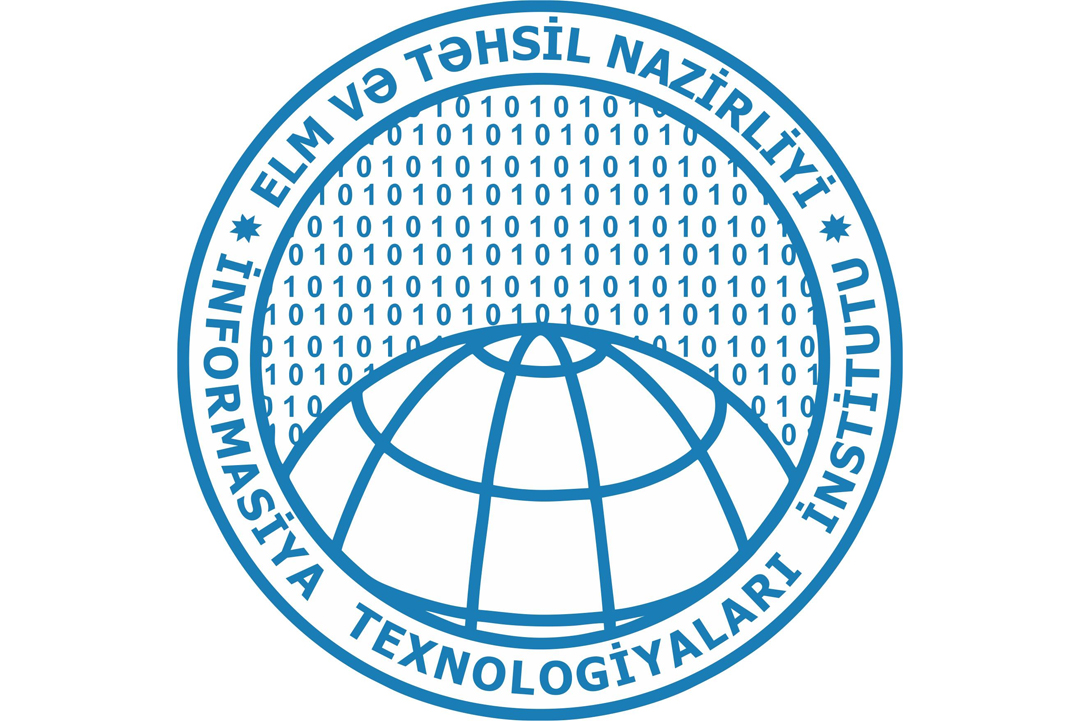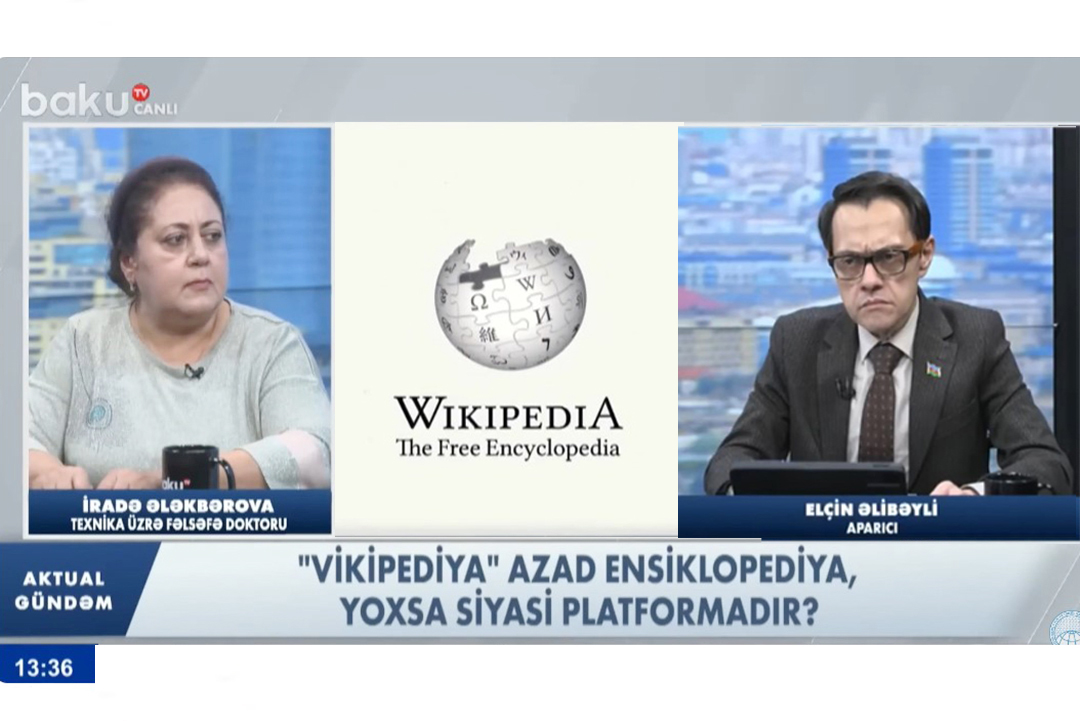NEWS
The advanced models of e-government have been analyzed
Next scientific seminar of Department 17 of ANAS Institute of Information Technology was held. Opening the event, Academician-Secretary of the ANAS, academician Rasim Alguliev stated that the seminar was dedicated to the master thesis of Jabir Amirkhanli “Analysis and Evaluation of Advanced models of E-Government” and “New Media Formation and Convergence Process in Azerbaijan Media System” by Leyla Mammadova on philosophy doctorate dissertation.
J. Amirkhanli presented dissertation work and informed about the relevance of the topic, the objective of the work and the issues. He gave information about the results of his research on world e-government models and spoke about the advantages and disadvantages of these models. He said there are different approaches to the assessment of the e-government and since 2002, the UN has assessed the member countries.
Later, J. Amirkhan presented the results obtained from multi-criteria empirical evaluation of the advanced models of e-government, "Worstcase" approach, TOPSIS method and comparison of methods, gave information about the results obtained in the dissertation and published scientific works on the subject.
Later, academician Rasim Alguliev made his suggestions and recommendations on the dissertation work. According to the scientist, the essence of the formulas given in the case should be fully disclosed and all terms should be studied in detail.
Discussions were held around the report, questions were answered. By the decision of the seminar, it was recommended that the dissertation be brought to defense, taking into consideration the proposals and suggestions.
Leyla Mammadova presented a dissertation work, gave information about the relevance, purpose, scientific novelty, approbation, and research methods.
She noted that although the formation of a new media system in Azerbaijan and its development process are complex, media convergence is the first to engage in scientific research.
Speaking about the scientific novelty of the research and the scientific-practical significance of the research, Mammadova noted that the main findings and conclusions of the research were reflected in articles and theses published in various scientific journals published in the country and abroad, presented to the scientific community at a number of conferences.
Reporter provided detailed information about information society, process of formation of new media, features of new media, functions and perspectives, theoretical and methodological and functional tipological aspects of social media, analysis of specific, typological and functional character of online journalism, as well as media transformation, multimedia technologies and media convergence, media convergence levels, forms and trends of convergent journalism, mechanism of convergent editorials, as well as the results of the analysis of the creative principles of the convergent journalist.
Speaking about the methods of digital information production, L. Mammadova noted that citizen journalism is superior to the traditional media in the speed of information, operatively. However, unlike professional journalism, sharing information and often violating ethical norms are the negative aspects of civil journalism.
Academician Rasim Alguliev gave his recommendations on the dissertation work. The director of the institute stated that the problem of regulation of the Internet was one of the problems of humanity, and emphasized the necessity of taking measures in this direction and regulating the Internet. The scientist noted that the new media interactivity, operability, openness, flexibility, etc. opportunities have led to the development of sociology and conflict areas in society. Effective use of the resources of the new media during the information war between states encourages the political and economic power of the states.
The academician also noted that increasing the capacity of the new media causes the emergence of technological, psychological, religious and sociological problems: “Today, information society, formed in Azerbaijan, is an integral part of the global information society. In this regard, measures should be taken to protect the information space of the country and international challanges should be implemented. It is no coincidence that in the laws of the Republic of Azerbaijan the protection of the personal data of citizens is reflected detailed”.
At the end of the lecture, the opinions were exchanged, questions were answered.
© All rights reserved. Citing to www.ict.az is necessary upon using news

